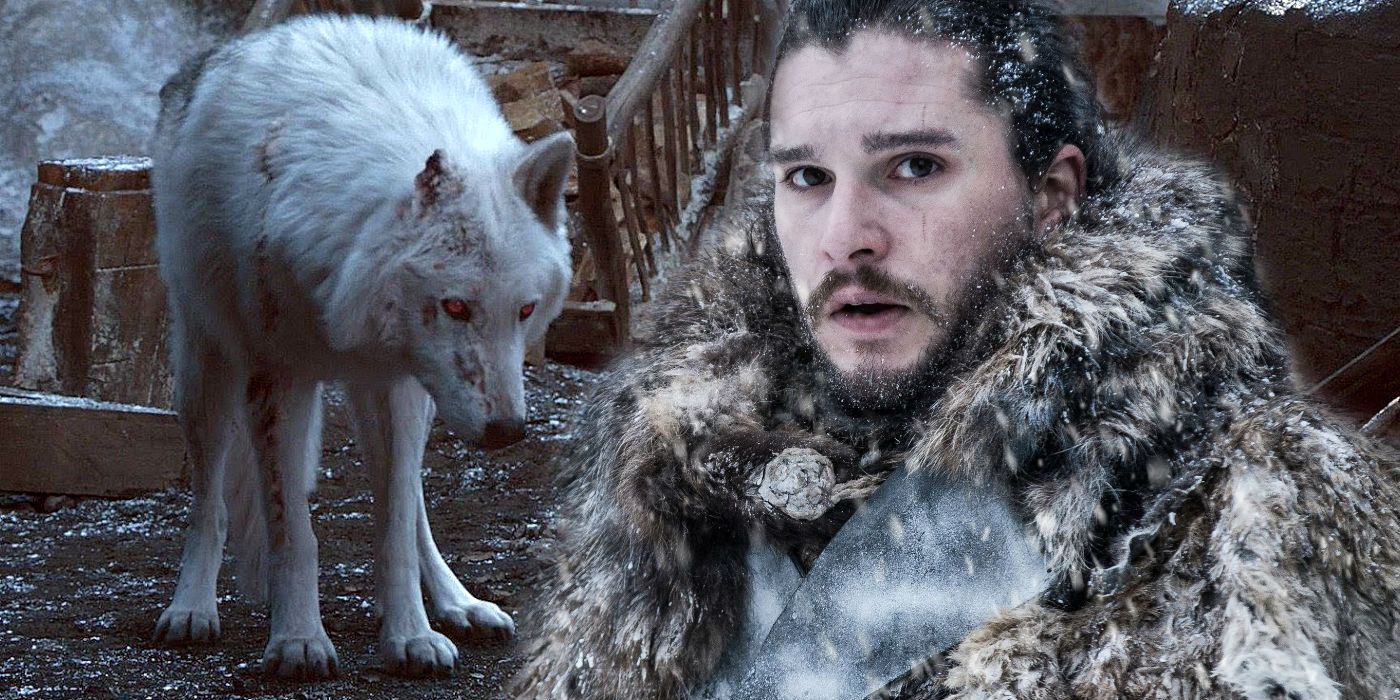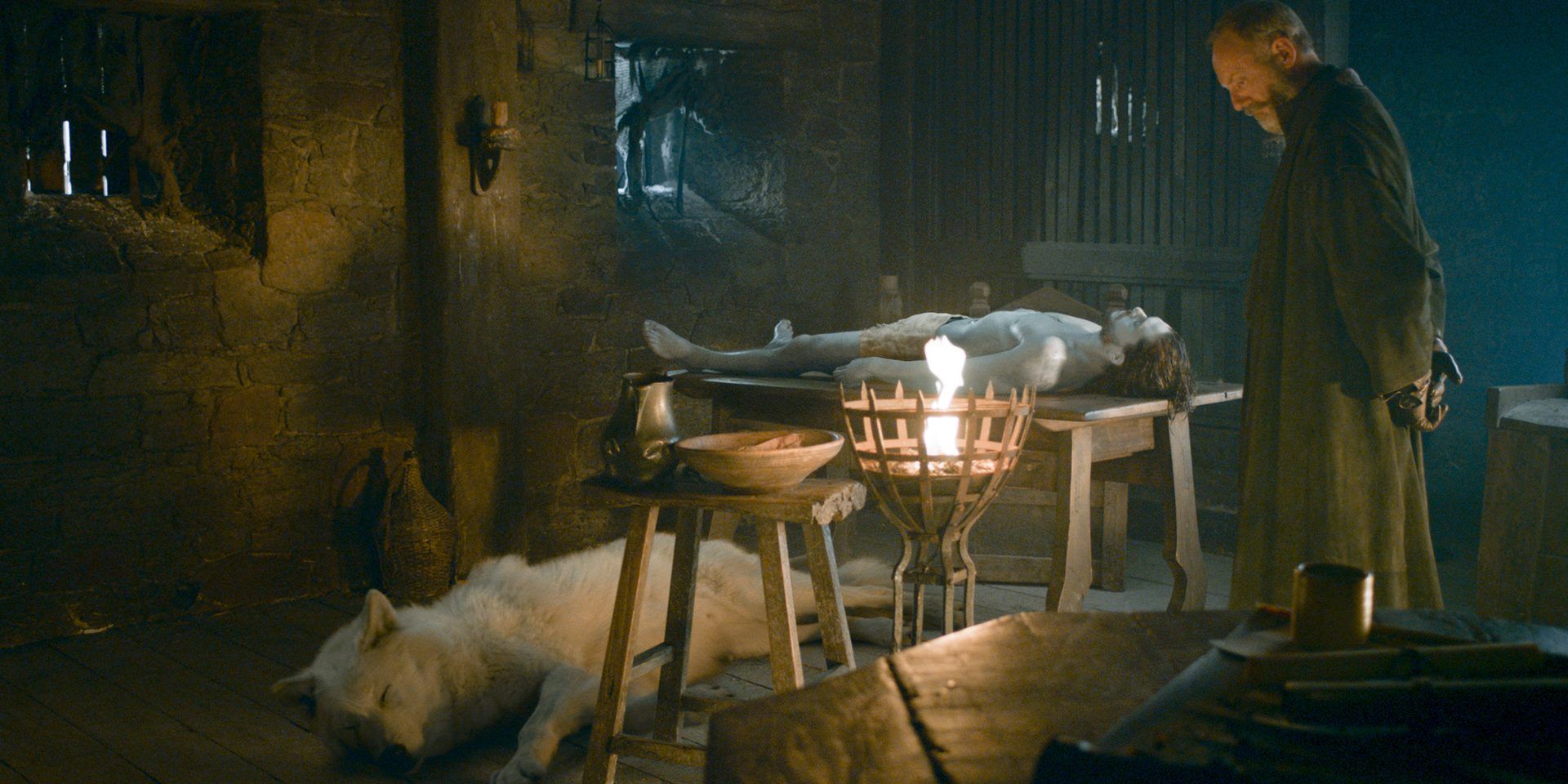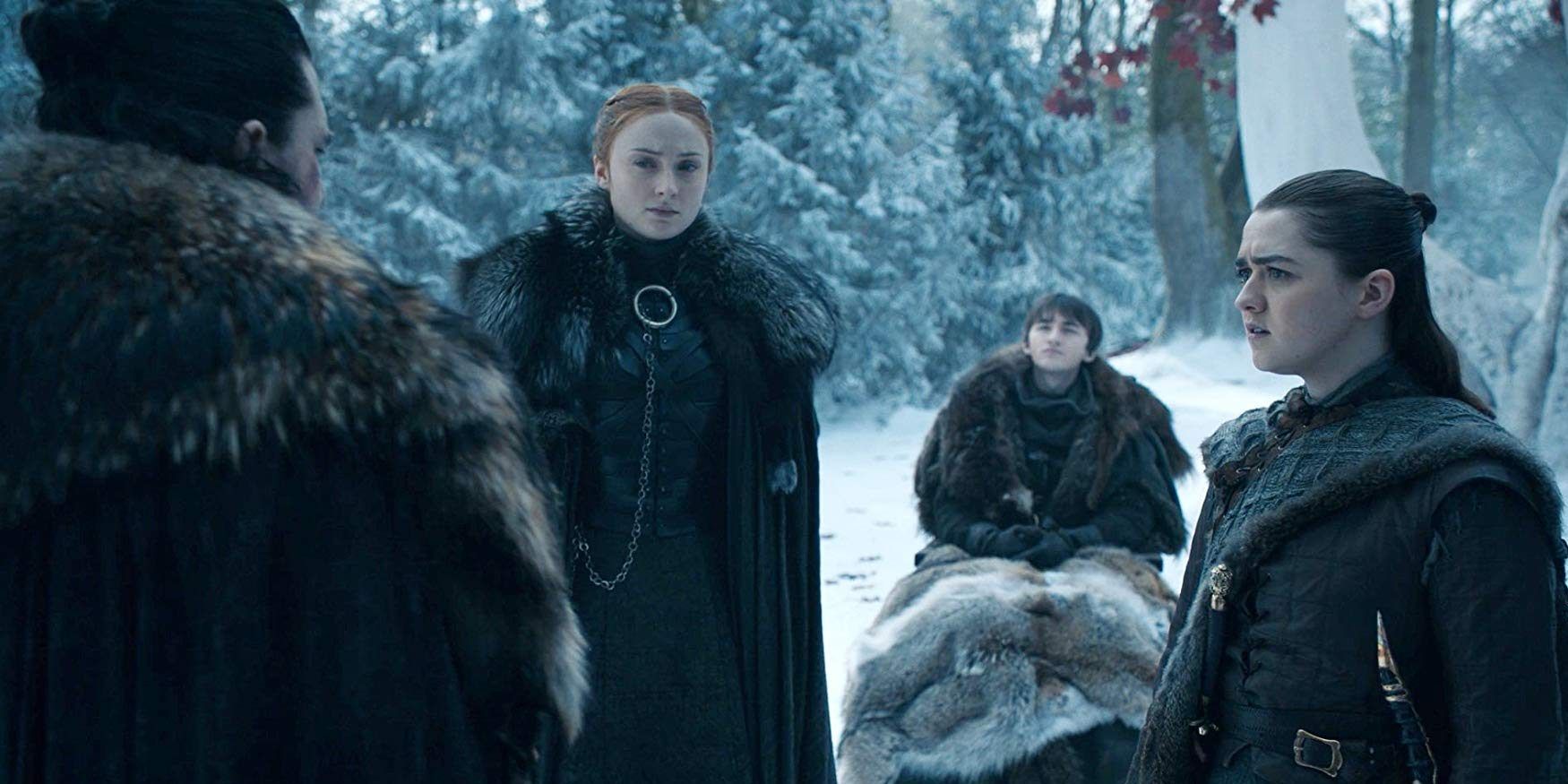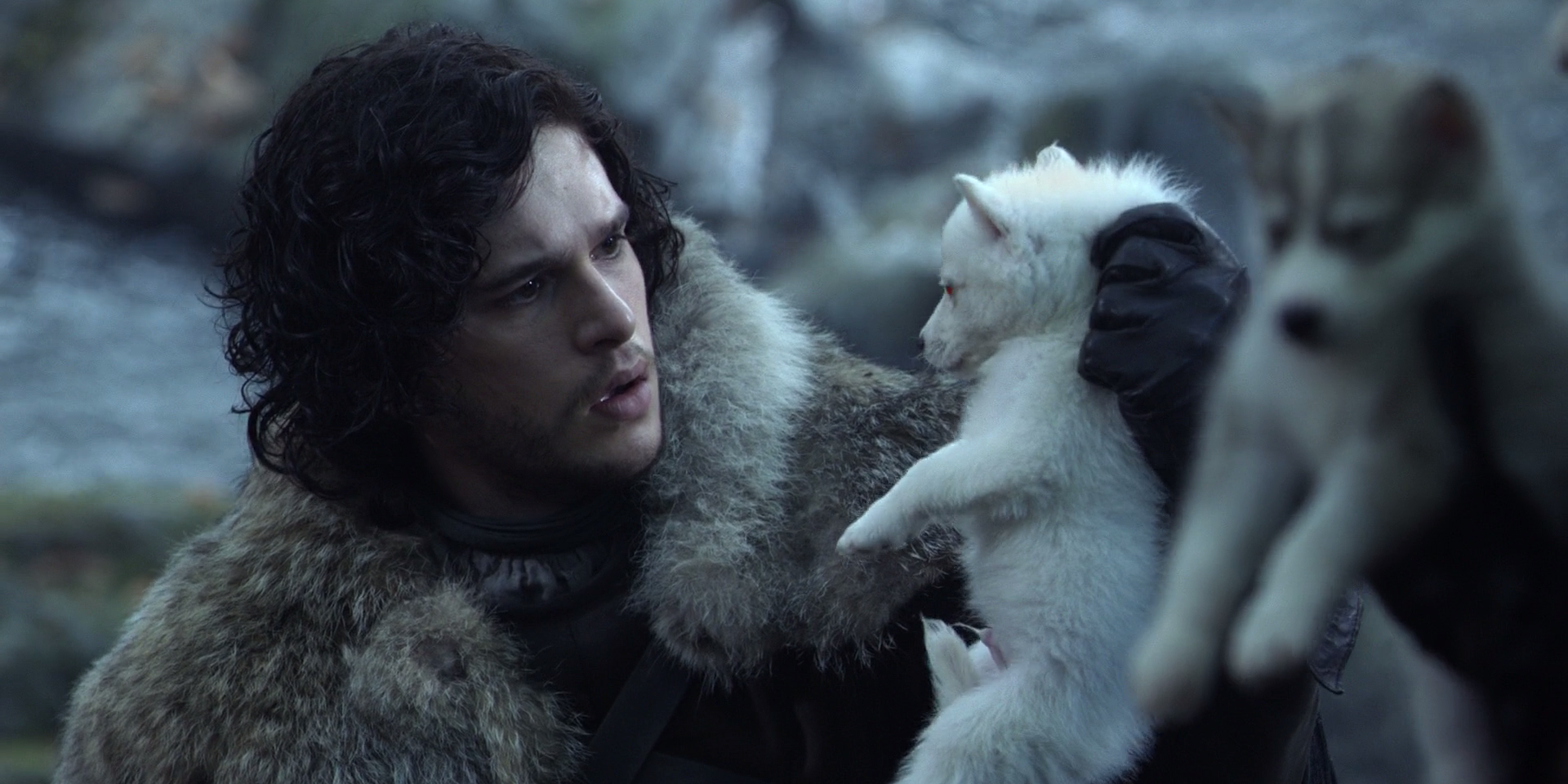In the Game of Thrones season 8 episode “The Last of the Starks,” Jon Snow fails to provide his dire wolf Ghost with a proper goodbye, and essentially gives him away to the wildling Tormund Giantsbane without so much as a pat on the head. This seemingly cold act has upset fans, but it’s symbolic of Jon's new mindset and motivations.
Ghost made his first appearance in the Game of Thrones pilot episode, “Winter Is Coming.” The Starks discover a dead dire wolf, and Ned - the patriarch - agrees to let each child have a surviving pup. It’s a significant moment, as the dire wolf itself represents the House Stark emblem. Over the subsequent Game of Thrones seasons, Ghost accompanied Jon to The Wall, and the two formed a metaphysical bond. Prior to Jon’s season 6 resurrection, Ghost remains by his corpse's side, mourning his dead master, so it’s understandable that Game of Thrones viewers have strong feelings about the powerful bond between the two characters. But everything has changed now, including Jon's perspective and responsibilities.
Ghost fought (and lost an ear) during The Great War, and then Jon gave him away. Here’s why this matters for Game of Thrones’ final two episodes.
Jon Accepts His Targaryen Blood
The entirety of “The Last of the Starks” suggests that Jon refuses to live in the past. He offends Daenerys by refusing her sexual advances and then states that he must reveal the awkward truth about his bloodline to Sansa, Arya, and Bran Stark. By this point in Game of Thrones, Jon has accepted his Targaryen blood, and the controversial Ghost sequence begins with him discussing the health of the Targaryen dragon Rhaegal (who was named after Jon's father, Rhaegar Targaryen). Jon will forever be grateful to Ned - the man who raised him as a son - but living in the past won’t allow Jon to defeat Cersei Lannister, or potentially Daenerys. Ghost represents a connection to the past; a subconscious reminder of Jon’s turbulent childhood. When Tormund says that “You’ve got the North in you" in "The Last of the Starks," Jon seems to reach an epiphany. Moments later, he stares Ghost in the eye and finally lets go of the past.
Endgame Storytelling
Game of Thrones director David Nutter explained that Ghost’s harsh send-off was a practical decision: “Since the direwolves are kind of CG creations, we felt it best to keep it as simple as possible.” On top of that, Ghost simply hasn’t been relevant over the past two seasons. The dire wolf briefly appeared early on in Game of Thrones season 8, and then charged against the White Walkers during the Battle of Winterfell. But Jon doesn’t warg through Ghost any more - it’s Bran who wargs. And Ghost had nothing to do with Arya defeating the Night King. So, what purpose does Ghost serve now that Jon has left the past behind and embraced his Targaryen blood? Times have changed, and so have the stakes.
A Ghost Surprise
It’s possible that Ghost’s departure will set up one more big moment between Jon and his dire wolf. “The Last of the Starks” establishes heightened conflict between Jon and Daenerys, while the episode concludes with Daenerys being enraged by Cersei Lannister. As the Northern troops head down to King’s Landing, perhaps Ghost will decide to tag along. Various Game of Thrones cast members have acknowledged Kit Harington's emotional reaction during the final table read, and maybe that’s because one of the final moments of ice and fire will incorporate Ghost in some form, and balance out the death of Rhaegal, along with the narrative as a whole. Now, that would be a proper goodbye.




